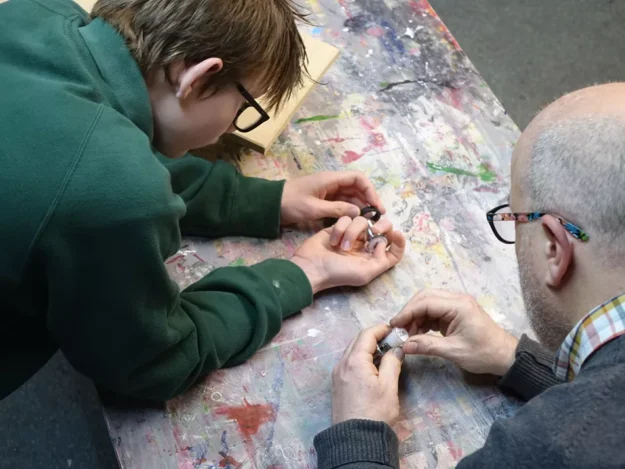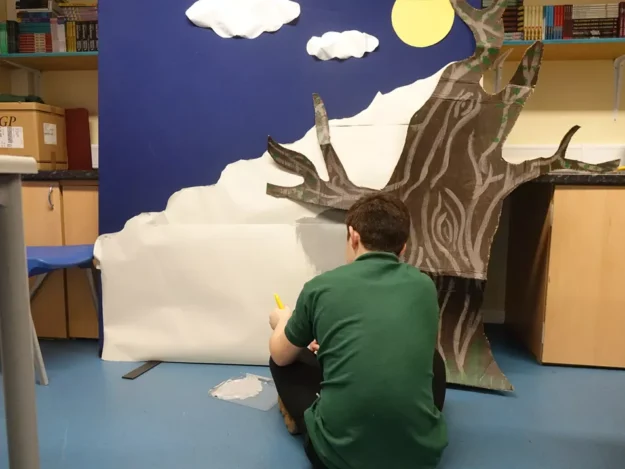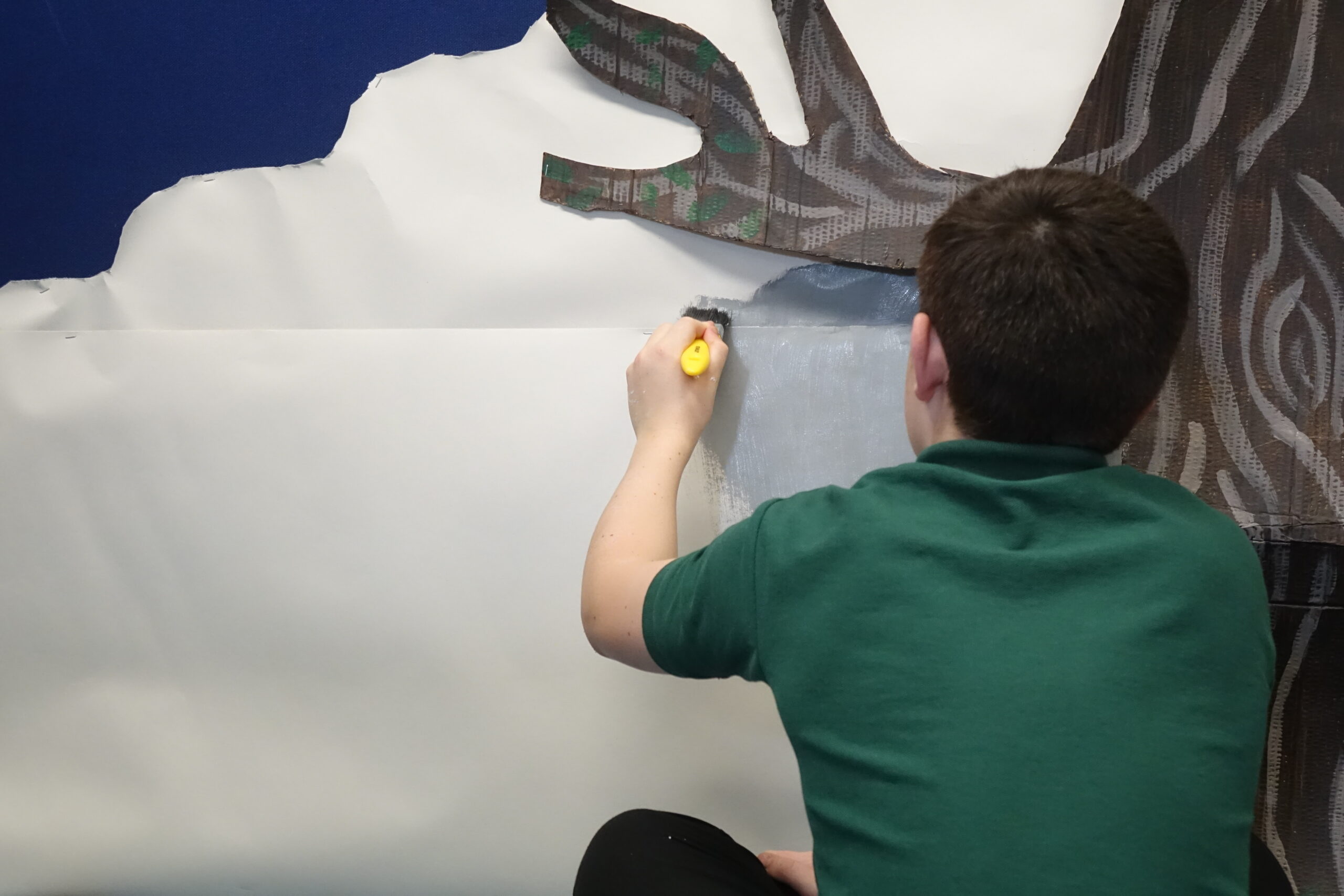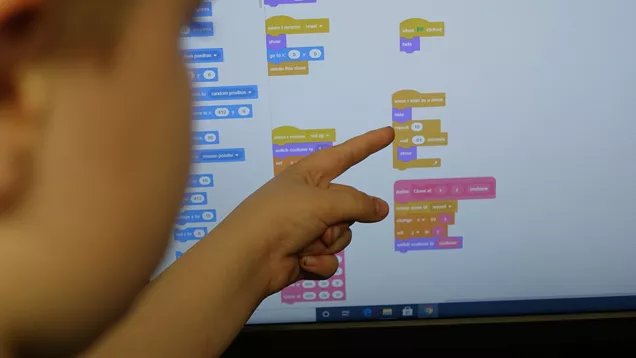
Kirby Moor School
We base our school ethos in the Attachment and Trauma Sensitive School Approach. This carefully informed approach helps our pupils to feel valued and included in our school community, whatever their previous experiences of schools have been.
Kirby Moor School has two sites where we educate pupils aged 7-18. Each class of up to six pupils is led by a qualified teacher and at least one learning support. The classrooms are well presented and resourced. Our pastoral teams facilitate individual programmes of support and pupils have access to additional support and school nurse (RGN).
Pupils are supported by individual programmes and planning. We have a comprehensive assessment and tracking system so pupils are taught at a level which leads them to thrive. We believe education is about developing the whole person. Planning engaging activities helps our pupils develop knowledge and skills, resulting in self-confident pupils ready for more independent futures. We are strongly focussed on Careers related learning to help develop skills and aspirations for future life goals. We have an active elected school council.
- Learning and practical activities are underpinned by the National Curriculum for those pupils in Key Stage 2 and 3.
- Accreditation routes are carefully planned for those pupils in Key Stage 4. We offer whichever course best suits the individual pupils. Courses included GCSE, Functional Skills, Cambridge Nationals, ASDAN Course or Unit Awards or a combination of different route.
- Facilities and teaching lead pupils to make outstanding progress.
- Individual transition programmes support pupils for the next stage of education.
- The locations promote a quiet and calming environment.
- Highly predictable daily routines are used.
- Pupils achieve excellent attendance and re-engage with learning including those with school phobia
Head Teacher & Safeguarding Lead
Karen Blaylock
Deputy Head (Herdley Bank Site)
Brian Tweddle
Deputy Head (Kirby Moor Site)
Carolyn Hagger
SENDCo
Kate Wareing
Kirby Moor Site
The Kirby Moor site is situated in Brampton, Cumbria. The pupils are taught in small groups designed to meet their academic ability and specific Special Educational Needs and are often nearer to a return to a mainstream school or are preparing for post 16 placement in a mainstream college. The Kirby Moor main site seeks to mirror a mainstream school but in a much smaller setting with a great deal more support in place. There is a Nurture Unit for those pupils with more complex needs.
The pupils at Kirby Moor main site who do not need the additional support of the Nurture Unit undertake subject specialist classes as part of their full timetable. The site has specialist Science, Maths, Computer Science, Art, DT, Humanities and Music classrooms in addition to more general teaching spaces. Pupils enjoy Physical Education lessons as well as out of classroom learning opportunities such as mountain biking, walking, climbing and team building events. Pupils enjoy lessons in addition to their National Curriculum or Accreditation based subjects such as life skills, careers related learning and out of classroom learning

Herdley Bank
The Herdley Bank site is a specialist annex to Kirby Moor School situated in Coanwood, Northumberland. Here the focus is educating pupils who’s social, emotional and learning needs require a high level of nurturing approach. This dedicated learning environment aims to stimulate each pupil’s readiness to learn and make social, emotional and academic progress through incremental steps. Here the pupils are aged 7–18 and they enjoy a highly nurturing and rural environment.
The focus of teaching is on encouraging pupils to be ready to learn. Creative approaches are taken to engage pupils by utilising diverse resources and learning spaces (inside and out); this enables teaching staff to match learning objectives with individual abilities and meet each pupil’s emotional and educational needs. Building up personal resilience levels in pupils underpins our teaching methods. The children at Herdley Bank benefit hugely from positive encouragement

Curriculum
All of our pupils have very individual educational needs. Some have missed large parts of their previous education whilst other pupils face specific learning challenges. All need a consistent approach and a stimulating delivery of a broad and balanced National Curriculum.
Kirby Moor School promotes a supportive and nurturing environment in which pupil’s are taught in small groups designed to meet their ability and needs.
We teach the National Curriculum objectives to those pupils who are in Key Stage 2 or Key Stage 3, also to any pupils who are older but still need that solid basis in curriculum understanding. Pupils who are in Key Stage 4 are taught through a variety of accreditation schemes of work.
The school leaders have devised a Curriculum Map which ensures the subjects of the National Curriculum are broken down in into specific year group expectations and then into themes to be taught over the 6 half terms of the academic year.
Communication with parents, carers and professionals
Formal termly reports are sent to parents/carers, local education authorities and social workers. Annual reviews and PEPs give a formal opportunity to show how a pupil is progressing.
Over the year, parents, carers, social workers and LEA representatives celebrate the achievements of our young people with them at school.
Pastoral support
Weekly 1:1 pastoral programmes of support help students to learn social, emotional and self-regulation skills.
Greater emotional understanding and regulation prepares pupils for their future independent lives and to achieve greater academic success. An open-door policy of support and multi-agency working has led to significant positive changes for pupils.
Resilience sessions include topics on: reflection, empathy, attention, sociability, emotional regulation, self-esteem, independence, adult co-operation, collaboration and honesty. These sessions with the Pastoral Lead help pupils to achieve goals and make helpful choices.
The school day
9:00 Registration
9:10 Lesson 1
10:00 Lesson 2
10.50 Morning break
11:05 Lesson 3
11.50 Lunch
12:45 Lesson 4
13:35 Lesson 5
14:25 Afternoon break
14:40 Reading session
15.00 Golden Time/ Reflection Time
15:30 End of school

Ofsted Reports
We post all our latest Ofsted Reports on this page, our last report is from September 2021, where we were rated Outstanding. We were also rated Outstanding on our previous reports in 2017 and 2014.

Parent Carer Information
A hub of useful information such as term times, pupil premiums and school policies as well as our latest newsletters, updates on school closures, trips and support group info.

Term Times
Our school holidays, bank holidays and term times are the same as most other schools in Cumbria. You can keep up to date with the latest Cumbria dates by clicking below.
Transitions & college links
The school has well established links with local colleges. We dedicate great attention to our transition programmes for pupils. Our approach, with our young people and the student support teams in the colleges, ensures pupils are prepared for the move.
The process for our staff starts when pupils are in year 9. We plan for the pupils at a level which they are capable of achieving. Careers lessons, meetings with the Pastoral Lead and sessions with an advisor, help focus our young people on achievable yet challenging goals for their futures.
The practical element begins in year 10 with pupils visiting colleges and finding out about the courses they may enjoy. Entry requirements are explored as well as looking at what continuing support would be needed once at college.
In year 11 a series of visits, college sessions (in lesson and social times), talks with student support teams and the more formal requests for support through EHCPs occur.
For pupils who are moving back to their own local areas and away from Cumbria, we mirror the same support. We arrange a series of meetings coordinated with home contact or semi-independent/supported living/new foster carer visit days.
Proprietor
Polaris Children’s Services
Chair: Jo August
Malvern View
Saxon Business Park, Hanbury Road,
Stoke Prior
Bromsgrove, B60 4AD